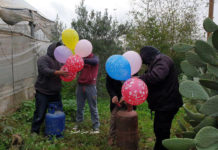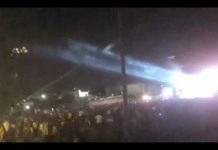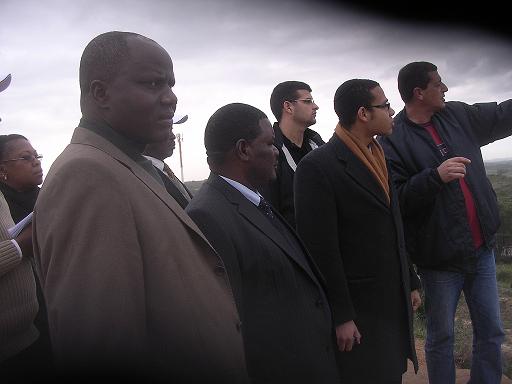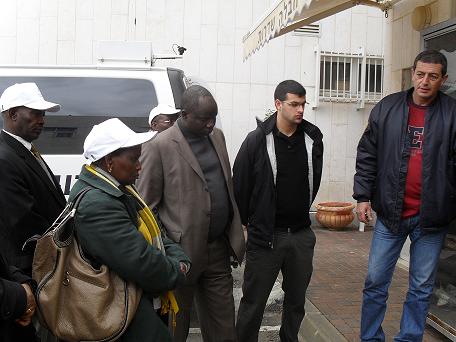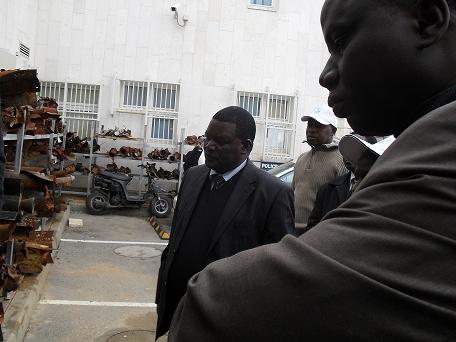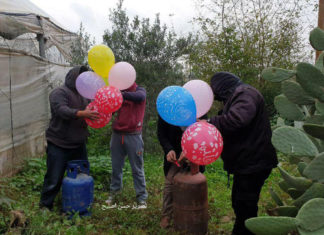Amidst escalating tensions from the radical Somali Islamic terrorist organization, al-Shabaab, a Kenyan delegation of parliament members, top security officials, and diplomats toured the Gaza-border city of Sderot yesterday to gain an in-depth look into how the Jewish state implements security measures against radical Islamic terrorist attacks.
This week, al-Shabaab issued a warning to Kenya that the terrorist organization was going to attack the Kenyan capital city of Nairobi. “We will reach Nairobi. When we arrive, we will hit until we kill,” men chanted in Swahilli on an Al-Shabaab website, followed by a taped message in Arabic. Although an al-Shabaab spokesman later told Reuters news agency that the terrorist organization was not responsible for the video, security analysts say that Kenya has every reason to be on alert.
“We have our own major issues with radical groups in Kenya and we are working on security measures to protect our own citizens,” one member of the Kenyan National Assembly told Sderot Media Center Monday, during the delegation’s visit to Sderot. “We have a lot to learn from Israel in this regard.”
Kenyan delegation overlooking Gaza Strip at Sderot viewpoint with Kobi Harush, Sderot Security Chief and Sderot Media Center. (Photo: Anav Silverman/Sderot Media Center)
The delegation visited the Sderot Police Station where members received a security briefing from Sderot Regional Security Chief, Kobi Harush and some background from Sderot Media Center. Harush detailed the measures that the Israeli government has undertaken to protect Sderot and area civilians from the constant bombardment of rocket attacks fired by terrorists in the Gaza Strip-including the recent influx of building of concrete bomb shelters and the 15-second “Color Red” warning alarm.
“We have constructed bomb shelter protection for everything-including our schools, playgrounds and homes,” said Harush to the Kenyan delegation. “The rockets have fallen in every location imaginable. Security measures undertaken by the city and compliance from residents to follow safety instructions have helped keep the number of Israeli casualties to a minimum.”
The delegation also spent some time at a Gaza viewpoint, where Harush further explained the various systems used to protect Sderot, a city close to 20,000 civilians that sits 1 km away from its attackers.
Kenyan delegation at Sderot police station with Sderot Media Center’s Jacob Shrybman and Sderot Security Chief Kobi Harush. (Photo: Anav Silverman/Sderot Media Center)
Although Kenya has not yet been targeted by rocket attacks from Somali Muslim extremists, two devastating bombing attacks have struck Kenyan cities- a 1998 bombing of the US Embassy in Nairobi followed by a multiple suicide bombing attack on an Israeli-owned hotel in the coastal city of Mombasa in 2002.
The al-Shahaab terrorist organization has been accused of standing behind this month’s violent demonstrations against Kenya’s decision to deport Jamaican Muslim cleric Abdullah al-Faisal, who has been jailed in Britian for urging audience to commit jihad against Westerners, Hindus and Jews. The recent demonstrations left six people dead including a police officer. Al-Faisal has also been accused of potential links to the foiled Christmas bombing of an American airline.
In Somalia, radical Muslim groups have taken over much of the country, with al-Shabaab aiming to impose its harsh version of Islamic sharia law among citizens. Qatar University professor, Afyare Abdi Elmi, told Reuters that al Shabaab’s new threats against Kenya and the group’s cooperation with the Yemeni al Qaeda, demonstrate that the group’s threats are no longer local to Somalia, but are more internationally focused. Al Shabaab has previously threatened to attack Uganda, Burundi and Ethiopia.
Kenyan Members of Parliament and Security Officials study Hamas and Fatah-fired rockets at Sderot Police Station. (Photo: Anav Silverman/Sderot Media Center)
During the Kenyan leaders’ visit in Sderot, Sderot Media Center’s Jacob Shrybman spoke of the rocket threat as a form of terrorism that could possibly be employed by Somali radicals to attack Kenyan cities, “As we know, terrorism is not a localized virus. The rocket threat faced by us here on the Gaza border in Sderot Israel is one that may potentially be faced by innocent civiians around the world.



